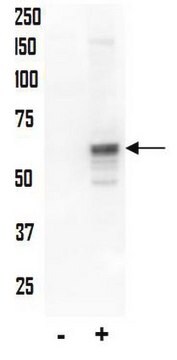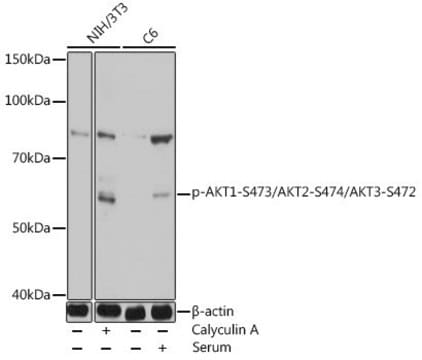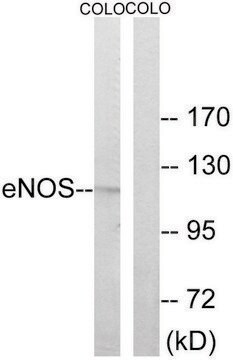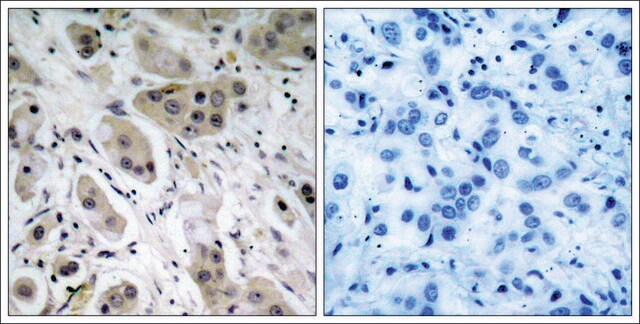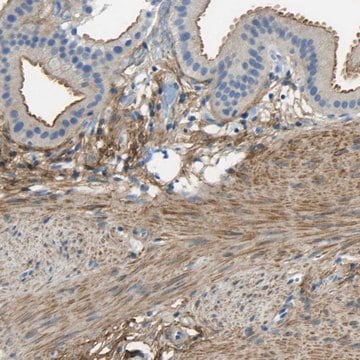SAB4301414
Anti-phospho-Akt (pSer129) antibody produced in rabbit
affinity isolated antibody
Synonym(s):
AKT, AKT1 kinase, RAC, RAC-PK-alpha, kinase Akt1
About This Item
Recommended Products
biological source
rabbit
Quality Level
antibody form
affinity isolated antibody
antibody product type
primary antibodies
clone
polyclonal
form
buffered aqueous solution
mol wt
65 kDa
species reactivity
rat, human, mouse
concentration
1.0 mg/mL
technique(s)
western blot: 1:500-1:1000 (Cell Lysate)
isotype
IgG
accession no.
NP_001014431.1
UniProt accession no.
shipped in
wet ice
storage temp.
−20°C
target post-translational modification
phosphorylation (pSer129)
Gene Information
human ... AKT1(207)
Specificity
Immunogen
Features and Benefits
Physical form
Disclaimer
Not finding the right product?
Try our Product Selector Tool.
Storage Class Code
10 - Combustible liquids
WGK
WGK 1
Flash Point(F)
Not applicable
Flash Point(C)
Not applicable
Choose from one of the most recent versions:
Certificates of Analysis (COA)
Don't see the Right Version?
If you require a particular version, you can look up a specific certificate by the Lot or Batch number.
Already Own This Product?
Find documentation for the products that you have recently purchased in the Document Library.
Our team of scientists has experience in all areas of research including Life Science, Material Science, Chemical Synthesis, Chromatography, Analytical and many others.
Contact Technical Service
